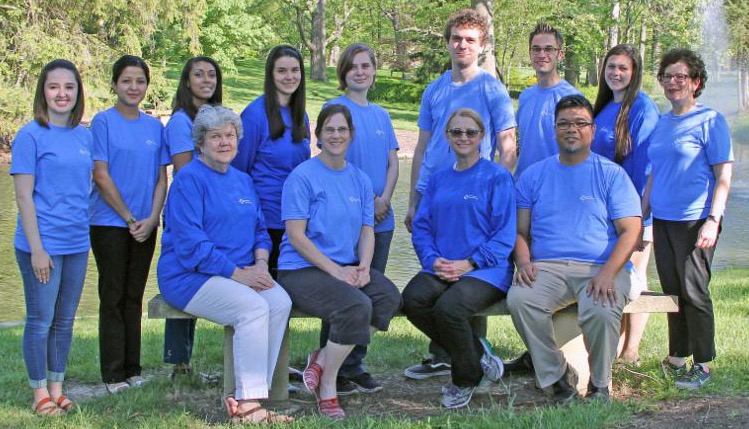
Dr. Katherine Abbott, PhD
and Kendall Leser, PhD
Stop for a moment and think about what it would be like to be told when and what to eat… and when and how to bathe.
We all make decisions based on our preferences in our daily lives, from the time we get up in the morning to the time we lay our heads down on our pillows at night. Some of us prefer to drink our coffee black, others prefer coffee with cream and sugar, while others simply don’t like the taste of coffee at all. Some prefer to spend time with friends while others prefer family. Some of us are night owls, while others prefer to go to sleep early. The list goes on and on. We acquire preferences at a young age, and our preferences for everyday living stay with us throughout our lifetimes.
Think of a time when you couldn’t get a basic preference of yours fulfilled-perhaps you were traveling and staying in a hotel that did not have your preferred pillow and when you woke up with a sore neck, the hotel did not have your favorite cereal for breakfast. You certainly would be somewhat dissatisfied-but could likely get through the day because you knew you were going to be returning to the comforts of home soon.
Now, consider what it’s like to live in a nursing home, memory care or assisted living facility.
So, just how can nursing home employees make life for their residents better? By getting to know and honoring their residents’ preferences for everyday living. Honoring preferences is one aspect of providing person-centered care.
As providers of long-term services and supports (LTSS) shift to offer person-centered care, they need practical, efficient tools to monitor and meet older adults’ daily living preferences and service needs. The Preferences for Everyday Living Inventory(PELI) is an assessment instrument that elicits individual preferences and supports effective care planning to enrich the quality and meaning of older adults’ daily experiences.
THE PELI has narrowed down 5 key domains of daily life: social contact, personal development, leisure, living environment and daily routine. Provider communities can select from the 72 questions phrased in clear, conversational language. These questions yield useful information such as what time individuals like to wake up, take a shower and get dressed, and which recreational activities they enjoy. Sixteen of the questions are consistent with the Centers for Medicare and Medicaid Services (CMS) Minimum Data Set (MDS) 3.0 (Section F – Preferences for Customary Routine and Activities) for nursing homes. Follow up questions delve more deeply into residents’ day-to-day preferences and choices, and help providers direct resources to provide tailored care.
How Widely Used is the PELI?
A growing number of service providers and researchers throughout the U.S. use the PELI. The State of Ohio Department of Medicaid recently designated use of the PELI as one of five factors that determine quality metrics for each nursing home’s daily payment rate. The national Advancing Excellence in America’s Nursing Homes Campaign person-centered care quality improvement goal includes PELI questions. CMS has endorsed the PELI tool as a recommended assessment tool. In 2010, the MDS 3.0 Section F (Preferences for Customary Routine and Activities) incorporated several PELI items for use in every nursing home in the U.S. In 2015, CMS developed the Focused Dementia Care Survey Tools Memorandum which cites the PELI as an appropriate assessment tool to learn about individuals with dementia’s preferences. Internationally, plans are underway to adapt the PELI for use in Australian and German nursing homes.
The PELI was developed under the leadership of Kimberly Van Haitsma, Ph.D., Associate Professor of Nursing and Director, Program for Person-Centered Living Systems of Care, Pennsylvania State University and Katherine Abbott, Ph.D., Robert H. and Nancy J. Blayney Professor and Assistant Professor, Department of Sociology & Gerontology, Scripps Research Fellow, Miami University. Numerous other investigators, expert clinicians and quality improvement specialists are a part of the vital and productive PELI team.
It is the team’s goal that nursing homes use the information collected via the PELI to customize residents’ care. Currently, the team has a funded project in the state of Ohio, which enables researchers to closely work with nursing home providers to create quality improvement tools. As part of this project, the team has developed a quarterly webinar series, monthly newsletters, a helpline, and educational training videos for nursing home staff. If you would like to learn more about our work and sign up for our newsletter, we encourage you to visit our website at PreferenceBasedLiving.com.



Once the information is collected, where do people store it, so all care providers have access to it?
I want to learn more about PELI. I am grately appreciate it for you sharing this valuable informations. I also would like to improve more of my knowledge about the quality of care into our loving and kind elderlies in the long term care.
Thank you!
I would like to learn more about Peli please.